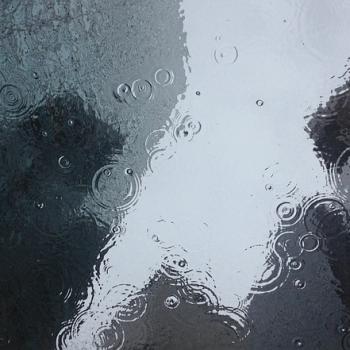Let's start with full disclosure: I pray for parking spaces. In fact, I pray for a lot of things. Some of my prayers could be called spiritually correct. I pray for deeper love; I pray for enlightenment; I pray for people in trouble. I pray for my actions to be of benefit to all and for an end to human suffering.
But I'll also pray for a workshop to go well or for answers to a problem I can't solve. Sometimes I pray for the fun of it, or because I feel bad about something I've done and am hoping the universe will extend forgiveness. And, when I'm circling a block in downtown San Francisco or New York City, I pray for a space to open up for me. A lot of the time, it works.
Mostly though, I pray because it's the most direct practice I know for communicating intimately with the divine. Prayer creates connection, sometimes with almost shocking immediacy, to the grace-flow of the universe. That's why the great prayer practitioners, like Rumi or Teresa of Avila, tell us that it doesn't matter what state we're in, or even what our motive is when we begin prayer—as long as we're willing to give it a go. "If you can't pray sincerely, offer your dry, hypocritical prayer," Rumi writes, "for God in his mercy accepts bad coin."
That's Rumi's point. When it comes to prayer, it's come as you are. You don't have to be pious; you don't have to be 'good'. You don't even have to believe your prayer will work. Just do it, hang in with it, and eventually you'll get connected.
Prayer—especially the kind of prayer where you ask God for favors—has a mixed reputation in my world, where many people tend to be postmodern, skeptical yoga practitioners or Buddhist meditators. For some of my yogi-friends and students, it simply feels too religious. Some of us also suspect that prayer is useless, at best a sort of spiritual placebo. (Studies on healing prayer have yet to establish any sort of scientific correlation between prayer and healing, though there is ample anecdotal evidence in favor.)
But mostly the issue is who or what we're addressing when we pray. Prayer implies a divine authority, and a lot of us have issues with authority, not to mention issues with God. We come to the relationship with God still carrying baggage from our relationships with our parents as well as from their attitudes about religion.
I've noticed that students whose parents came across as punishing or judgmental, will tend to have a visceral belief that God is also judgmental. If our parents were uncaring, or if we felt abandoned by them, we'll probably have a hard time feeling that we can trust the universe. If they were indulgent, we're likely to think of God as a benign cosmic uncle, and expect the universe to be constantly doing us favors. And if, like me, you were brought up and educated by modernists who assumed that evolutionary theory disposed of God way back in the 19th century, you might prefer to leave God out. It's no accident that Zen, with its minimalist style and non-theistic approach to meditation, has been the spiritual path of choice for so many modern and postmodern Western intellectuals, scientists, and artists.
So why would a postmodern yogi pray? For at least three reasons: One, because prayer softens the armor around your heart, and actually helps you receive grace. As you get the hang of establishing connection in prayer, you'll notice more and more how praying shifts your energy. Maybe you feel less hopeless, or less defensive, or more protected, or just calmer. Chances are that even that subtle shift will also make a difference in how your external situation plays out, even if the difference is very subtle.
Second, because prayer brings you into relationship with the sacred. When you pray, you get to show up in sacred space in your most personal, human, down-home way. You don't have to be sophisticated, advanced, or particularly holy. Above all, you don't have to act cool. You can speak your confusion, scream for help, express desires, say thank you, go "Wow," or even complain. Above all, you can be needy. Rumi actually recommends sheer neediness as the key to opening up the channel between yourself and God. "What is bounty without a beggar?" he writes. "What is generosity without a guest? Be a beggar, for beauty is seeking a mirror, water is crying for a thirsty man!"
Another reason to pray is simply because prayer is a practice, and a deep, multi-leveled one, which you can do at any level of spiritual development. As a category, prayer takes in mantra repetition, chanting (the words we sing in kirtan are basically prayers of praise, not so different in content from a Pentecostal cry of "Praise the Lord!"), and the invocations sung at the beginning of a yoga class. (Try chanting 'Om' as a prayer, and notice how much more deeply it resonates!) In the Christian contemplative tradition, there's a form of silent prayer where you center yourself in the heart and orient yourself toward the divine; this contemplative prayer is actually a practice of meditation.





